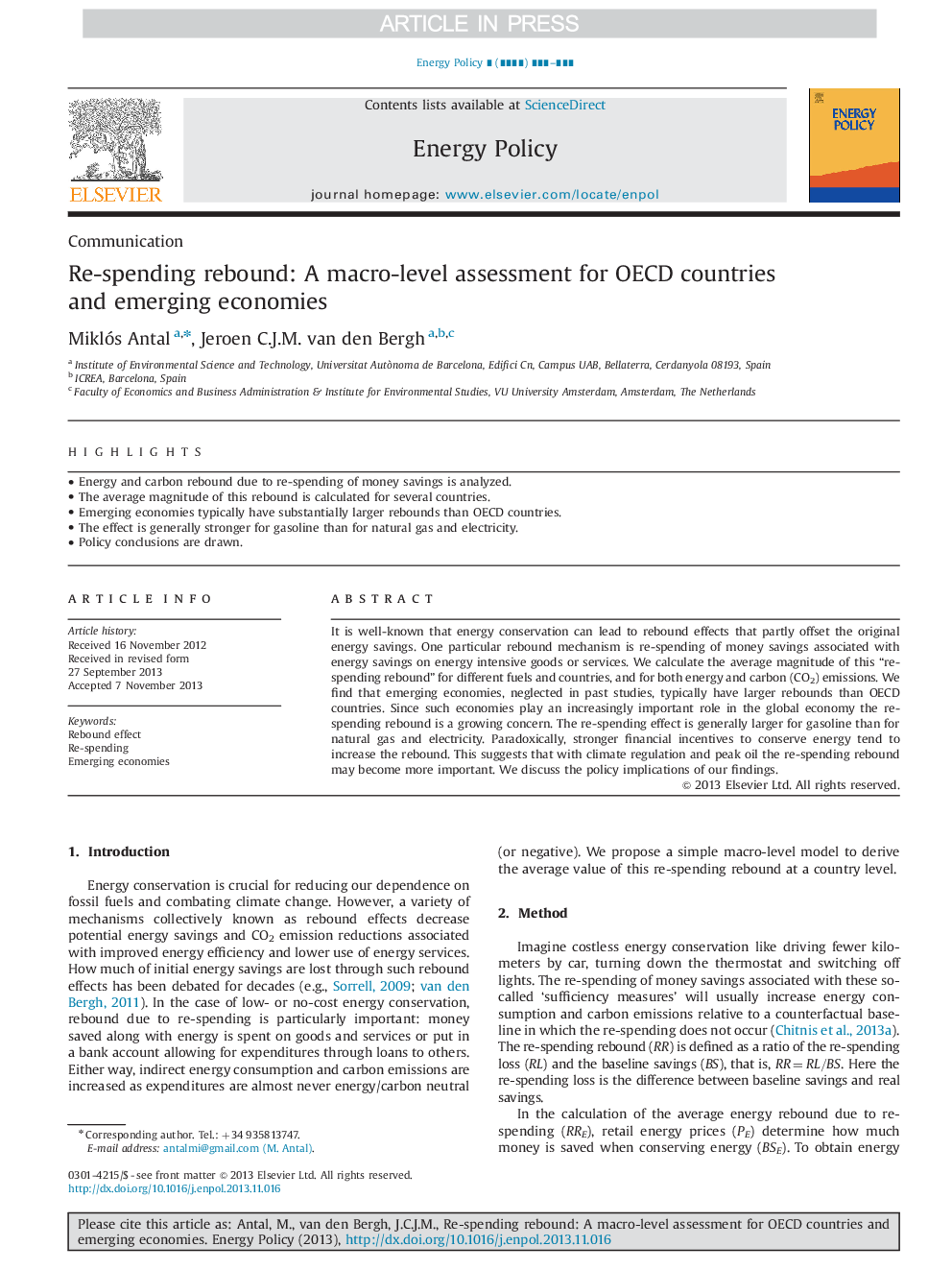| کد مقاله | کد نشریه | سال انتشار | مقاله انگلیسی | نسخه تمام متن |
|---|---|---|---|---|
| 7402621 | 1481290 | 2014 | 6 صفحه PDF | دانلود رایگان |
عنوان انگلیسی مقاله ISI
Re-spending rebound: A macro-level assessment for OECD countries and emerging economies
دانلود مقاله + سفارش ترجمه
دانلود مقاله ISI انگلیسی
رایگان برای ایرانیان
کلمات کلیدی
موضوعات مرتبط
مهندسی و علوم پایه
مهندسی انرژی
مهندسی انرژی و فناوری های برق
پیش نمایش صفحه اول مقاله

چکیده انگلیسی
It is well-known that energy conservation can lead to rebound effects that partly offset the original energy savings. One particular rebound mechanism is re-spending of money savings associated with energy savings on energy intensive goods or services. We calculate the average magnitude of this “re-spending rebound” for different fuels and countries, and for both energy and carbon (CO2) emissions. We find that emerging economies, neglected in past studies, typically have larger rebounds than OECD countries. Since such economies play an increasingly important role in the global economy the re-spending rebound is a growing concern. The re-spending effect is generally larger for gasoline than for natural gas and electricity. Paradoxically, stronger financial incentives to conserve energy tend to increase the rebound. This suggests that with climate regulation and peak oil the re-spending rebound may become more important. We discuss the policy implications of our findings.
ناشر
Database: Elsevier - ScienceDirect (ساینس دایرکت)
Journal: Energy Policy - Volume 68, May 2014, Pages 585-590
Journal: Energy Policy - Volume 68, May 2014, Pages 585-590
نویسندگان
Miklós Antal, Jeroen C.J.M. van den Bergh,